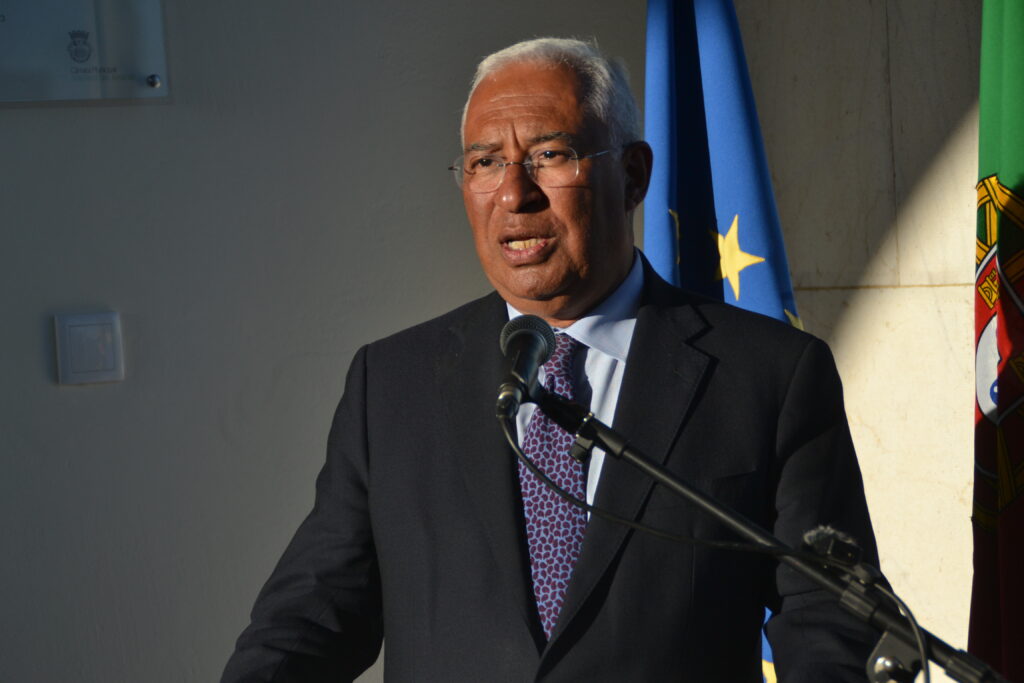The Prime Minister considered today that his Government went to the constitutional limit in the integration of the “regional level” and that the conclusion of the decentralization process is the best tribute to the 50th anniversary of the 25th of April.
These positions were defended by António Costa at the end of a ceremony launching the program for the construction, recovery and rehabilitation of school establishments – a plan that was the subject of an agreement between the Government and the National Association of Portuguese Municipalities (ANMP) within the scope of the process of decentralization of skills.
The program, according to data presented by the Minister of Territorial Cohesion Ana Abrunhosa, will involve 451 second and third cycle schools and Secondary Education by 2033, in an investment valued at 1.730 million euros.
The ceremony was attended by the ministers of Finance (Fernando Medina), Education (João Costa) and the Presidency (Mariana Vieira da Silva), in addition to Ana Abrunhosa, and dozens of mayors, with emphasis on the president of ANMP ( Luísa Salgueiro), from Amadora (Carla Tavares), Gaia (Eduardo Vítor Rodrigues) or Cascais (Carlos Carreiras).
«It was difficult to find a better way to mark the 50th anniversary of the 25th of April than to complete this decentralization process. This process was the one that deepened democratic Local Power the most since its creation in 1976», maintained António Costa at the beginning of his intervention.
The Prime Minister then mentioned that 22 new competencies were transferred to local authorities, 19 of which without any relevant problems, but three of them remained in the final phase following “very demanding” negotiation processes: Social action, education and health ».
«What we achieved was very important, not only for the reform of the State, but, above all, for the service of the populations. This process was very important because it allowed an x-ray to be carried out in the area of social action, health and education, which allows this decentralization process to not be just a mere transfer of skills», advocated the executive leader.
For António Costa, «the country can now be provided with intervention financing conditions that did not exist before, because it was detected in social action, for example, that the intervention criteria were not objective and equitable» between the different areas of the country.
«We found that in the health area there was huge underfunding, which had to be filled so that competencies could be decentralized. And what we are highlighting today is something that we also saw in the area of education: In fact, many school facilities were in need of urgent and priority intervention, essentially those in the second and third cycles and secondary schools that had not been the target of intervention by Parque School”, he pointed out.
In his speech, the Prime Minister also defended that his Government took action “towards the democratization of regional development coordination committees (CCDR) and that decentralization would not be complete if progress had not also been made at the regional level”.
At this point, the executive leader pointed out that, in the country, “there are different views” on the implementation of the regional development process”.
«We went as far as we could go in the current constitutional and political framework. The CCDRs are no longer state bodies, they are now public institutions; their presidents were no longer chosen by the Government and began to be elected by the mayors of the respective regions", he highlighted.
According to António Costa, «the future will tell» whether CCDR representatives will continue to be appointed «indirectly through mayors, or whether they will be directly elected by citizens».
"One thing is right. This step changed the relationship between the CCDR and the Government, and between the CCDR and the mayors. The CCDRs had to be accountable to the Government. Now, they have to be accountable to those who elect them», he added.



















Comments